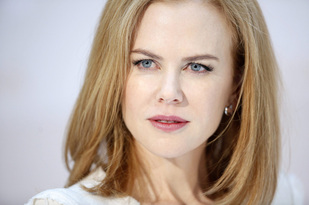
Nicole Kidman is an interesting actress. Actually, she’s a very interesting actress. Since first grabbing our attention back in 1989 with the solid Australian thriller Dead Calm, she’s been steadily growing as one of the best and most capable actresses in Hollywood. She is also regarded as one of the most beautiful women ever to walk onto the movie screen. Her talent and beauty have generally combined to give her a certain air, the distinction of being regarded as a true movie star, a status only ever attained by a select few. What makes her so interesting, though, especially given her movie star status, is that she is also one of the most wilfully reckless actresses out there.
Whilst she may have contemporaries who can beat her in terms of style or technique (Cate Blanchett, Naomi Watts and Julianne Moore all spring to mind), there might not be any other actresses who can match her combination of genuine talent and sheer backbone. That she is able to do pretty much anything with an incredible dexterity of performance, an air of class and utter brazenness is reason enough to seek out her films and see what she has to offer.
As such, presented here are some of Nicole Kidman’s best works for you to investigate.
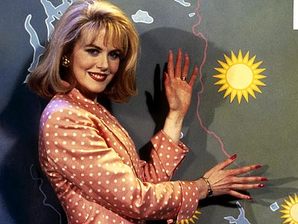
“You aren't really anybody in America if you're not on TV,” says Suzanne, the fame-hungry weather girl of Gus Van Sant’s 1995 black comedy. Kidman walks a fine line throughout this film, making her Suzanne an enjoyably nasty femme fatale who tries to convince a young admirer to kill her husband, whom she believes is holding her back from the stardom she’s destined for. With her bright, wide eyes and bright, wide smile, Suzanne is a borderline caricature of every small-town girl who really wanted to make it in show business. However, Kidman also matches this manic campery with an edge of determined sexuality and dark resolve. And she’s actually really funny, too. It’s a role that could easily have fallen too far in any one of the different directions which the film pulls, but Kidman keeps it all on point, and earned herself a Golden Globe for her trouble.
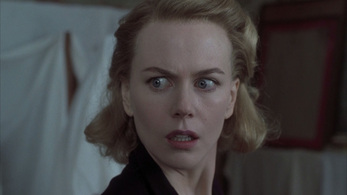
It’s a big challenge for any performer to effectively be the one on whose shoulders an entire film will solely rest. In 2001, Nicole Kidman proved she was up to the task, portraying Grace Stewart, the mother of two children living an old house that she comes to believe is haunted. The film itself is chillingly atmospheric, the darkness of the house and period detail all building towards a thoroughly eerie setting. And within it all is the presence of Kidman, portraying a woman moving towards panic with grave inevitability, but maintaining resilience by virtue of necessity. The old fashioned quality of the production is enhanced by Kidman’s adeptness at a classical poise, her physical demeanour recalling something akin to, ironically enough, Grace Kelly (the hair alone instantly stirs the memory of Kelly in Dial M for Murder). Kidman must ultimately dictate the emotional pitch of the film through her own performance, and she never lets it slip once.
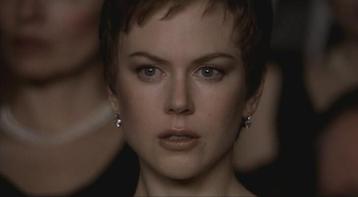
We’ve mentioned Birth on here before (back in our look at long-takes in film), but it always deserves more of a mention. This film would have been very tricky to find its lead actress, given its stance as a quasi-metaphysical fairytale with the potentially very problematic turn of having a young boy arrive on a woman’s doorstep claiming to be the reincarnation of her dead husband. It’s a story that pretty much invites knee-jerks, and such was the reaction of many to this tale of the conflicting emotions arising within a woman who shouldn’t believe and probably doesn’t, but wants nothing more than for it to be true. That Kidman would take on this role, with all of its vulnerability and uneasy tension, speaks to her continued practice of rarely resting in a comfortable position. She manages to bring out a sense of stoicism covering a deep yearning, heartache and fear in Anna, the woman placed in such a position. And this performance is encapsulated within what stands as one of the greatest long-takes in modern cinema. If this isn’t actually Kidman’s finest hour, then it’s damn close to it.
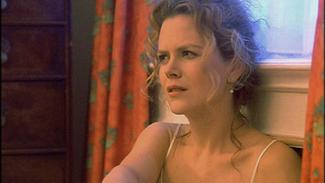
During her career, Nicole Kidman appeared in three films with Tom Cruise. The pair met on the 1990 race car movie Days of Thunder (financially successful, if critically middling), and followed that with 1992’s Far and Away (same stance with box office and critics). However, when they appeared together for the final time for the great Stanley Kubrick’s final film, 1999’s tale of marital disharmony Eyes Wide Shut, many were quick to dismiss this as stunt casting… and yes, it actually probably was a stunt, but a stunt that also struck hard and made it oddly perfect. The film follows the spiralling ego and personal despair of a New York doctor (Cruise) when he discovers his wife’s longing to be unfaithful, having become bored with him. The film itself was greatly disregarded on release (that’s a whole other topic for discussion), but this belies much of the real goodness within it. And one of the really good things is Nicole Kidman’s performance as the unsatisfied wife who pierces her husband’s sense of marital stability with a frank, even intentionally hurtful confession about what she wants from other men. It’s cruel and clearly cuts like a knife, which she seems to take a degree of pleasure in, and it just wouldn’t have the same impact without the influence of Hollywood’s then-golden couple at the centre of it all.
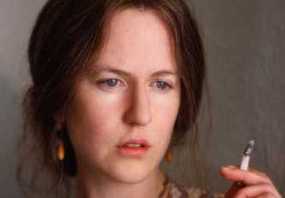
The film that earned Kidman her Academy Award for Best Actress, this is easily amongst the finest performances of her career. Though much was made of appearance-altering prosthetics, specifically the fake nose Kidman donned for the role (and which was lighted upon by Denzel Washington when he presented her Oscar), it would be rather tiresome and cynical to reduce her performance to a simple make-up job, an attempt by a gorgeous actress to snatch an award by appearing less attractive. Kidman envelopes herself into the role of Virginia Woolf far more than a simple prosthetic would be capable of allowing, lowering her vocal tones and engaging through a more direct inquisitive stare. A study in contradiction, acting as personally placid, curious to the point of discomfort and physically twitchy, her role as the troubled author is a performance of truth and quiet power. Perhaps the only stumble is a slightly off-centre English accent, but this is honestly rather easy to overlook in terms of the entire performance. Don’t let the nose fool you, Kidman is excellent here.
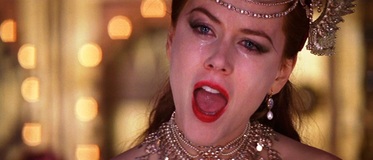
Baz Luhrmann is kind of a madman, an audacious stylist who builds fantastical (and fantastically garish) worlds of noise and colour. It would seem that his entire purpose in creating these worlds, of whipping up some manic frenzy is so that he can find the quiet moments within it. And for his 2001 full-blown musical Moulin Rouge!, he finds both the cause for the loud passion and quiet sorrow in Nicole Kidman’s Satine, bright star of the Parisian nightclub. It may sound odd to say it, but Satine may be one of the most challenging roles Kidman has had to deal with, given how much is expected of her. Being a Luhrmann picture, the film’s tone is manic, as Kidman must keep in time with it at every step, whether it’s the intoxicating star performer’s big number or the moments of silence in her dressing room afterwards. It speaks a great deal to Kidman’s talent that she can hit every moment of comedy and drama, but showcase her talents as a singer and dancer, not to mention her commitment to the work being so that she damn near broke her ribs whilst working in the harness.
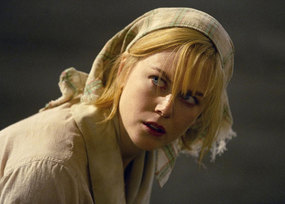
No one works with someone like Lars von Trier unless they mean to push themselves. He’s a filmmaker who has made his name as a contentious iconoclast, breaking down whatever walls and barriers other people have put up, whether it’s a good idea or not. So, when Nicole Kidman joined the stellar cast for 2003’s Dogville, she would most certainly have an idea about what to expect. Besides, von Trier has quite the track record with regard to exceptional performances from his female leads (Emily Watson, Bjork, Charlotte Gainsbourg and Kirsten Dunst have all delivered some of their best work for him). For this film, which eschewed setting completely, forcing the actors to pantomime everything from driving to opening doors, Kidman plays a woman on the run, looking for a place to hide out from her tormented past in a small community. However, as she soon becomes a victim of those she sought refuge with, Kidman slowly, but clearly becomes an exhausted wreck, beaten down by those around her, the convenient scapegoat for their own anger and misplaced frustration. Again, part of the shock of it all comes from the fact that we see Nicole Kidman bear such agonies, and she displays that hurt and torment for all to see.
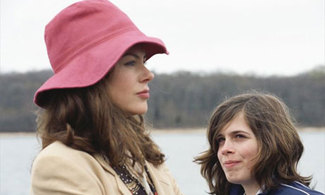
Kidman isn’t too regularly noted for her comedic skills, largely because when she is being funny, it’s rarely in a way one would expect. She is funny, but it’s normally tinged by some degree of darkness (a la To Die For or Rabbit Hole). One of her best comedic turns, that of bitter poet Margot, is a lesson in just how funny she can be. In Noah Baumbach’s comedy about a neurotic writer visiting her sister Pauline (played by the wonderful Jennifer Jason Leigh) on the ever of her wedding, Margot instantly sours the mood by pointing out her sister’s numerous faults and uses them to explain why the marriage is doomed… and that’s really just to start with. However, it’s a performance soaked in irony, as Margot, even with all of her obvious faults, believes she is in some way being supportive. It’s caustic, off-putting, miles away from the type of character Kidman normally plays, but therein lies part of the joy of it all. Kidman has a great sense of timing and delivery, and this is a cracking showcase for just how well she understands it all.
But why let me have all the fun? Do you think Stoker should be here? Or Portrait of a Lady? Or The Paperboy? What would you count amongst Nicole Kidman's finest performances?

 RSS Feed
RSS Feed
